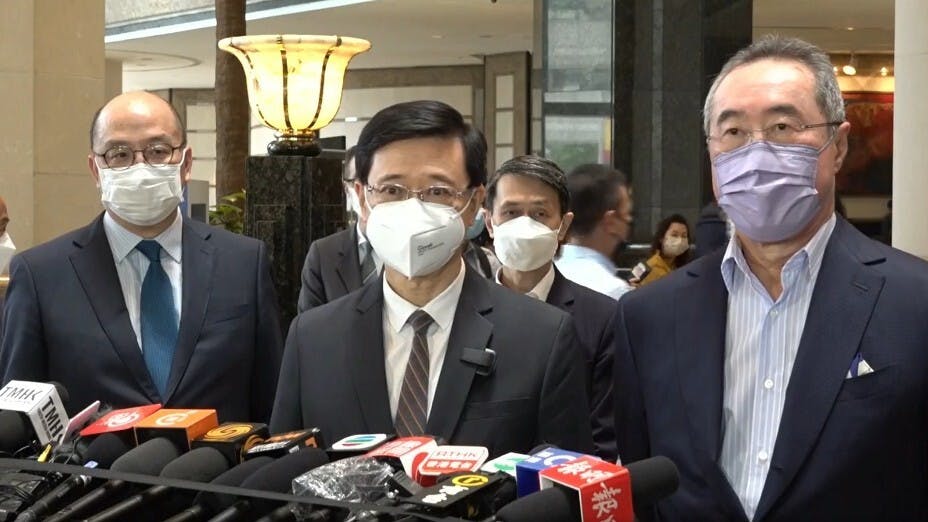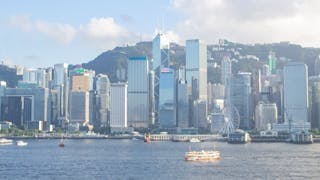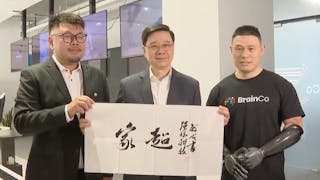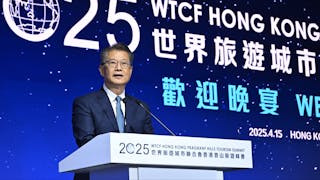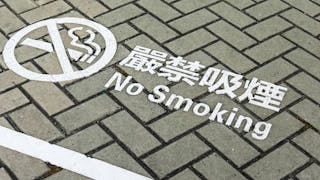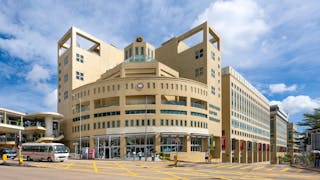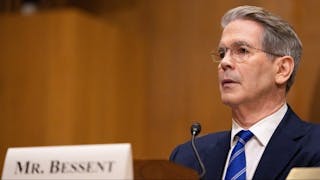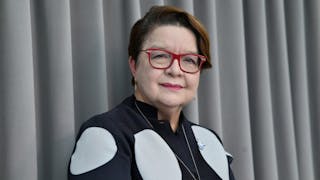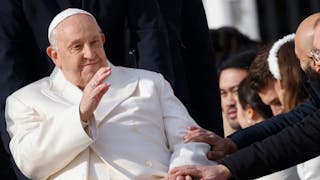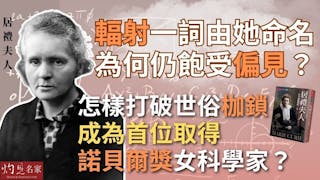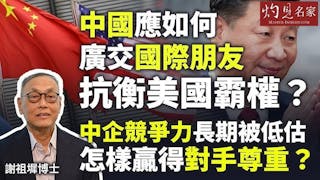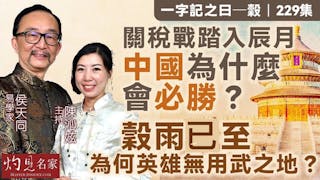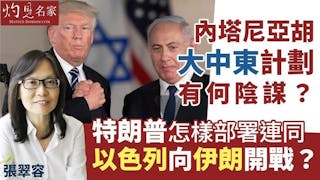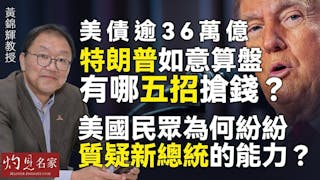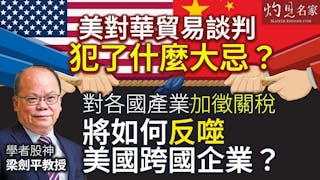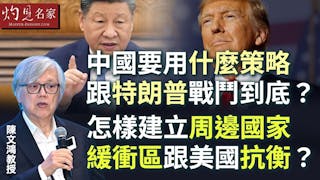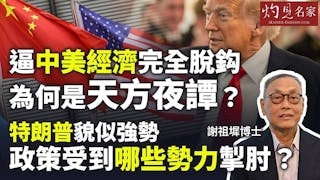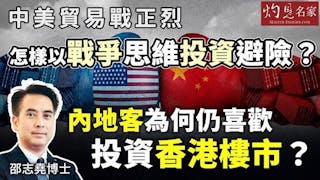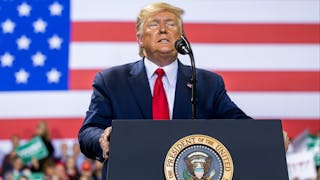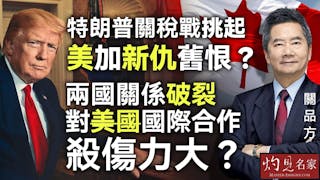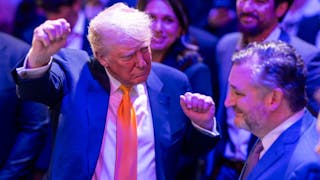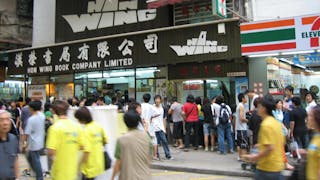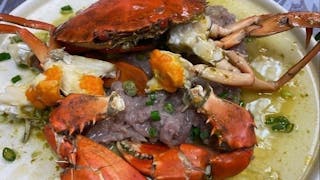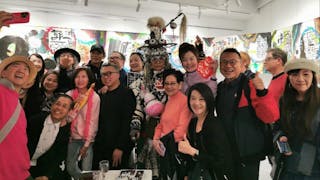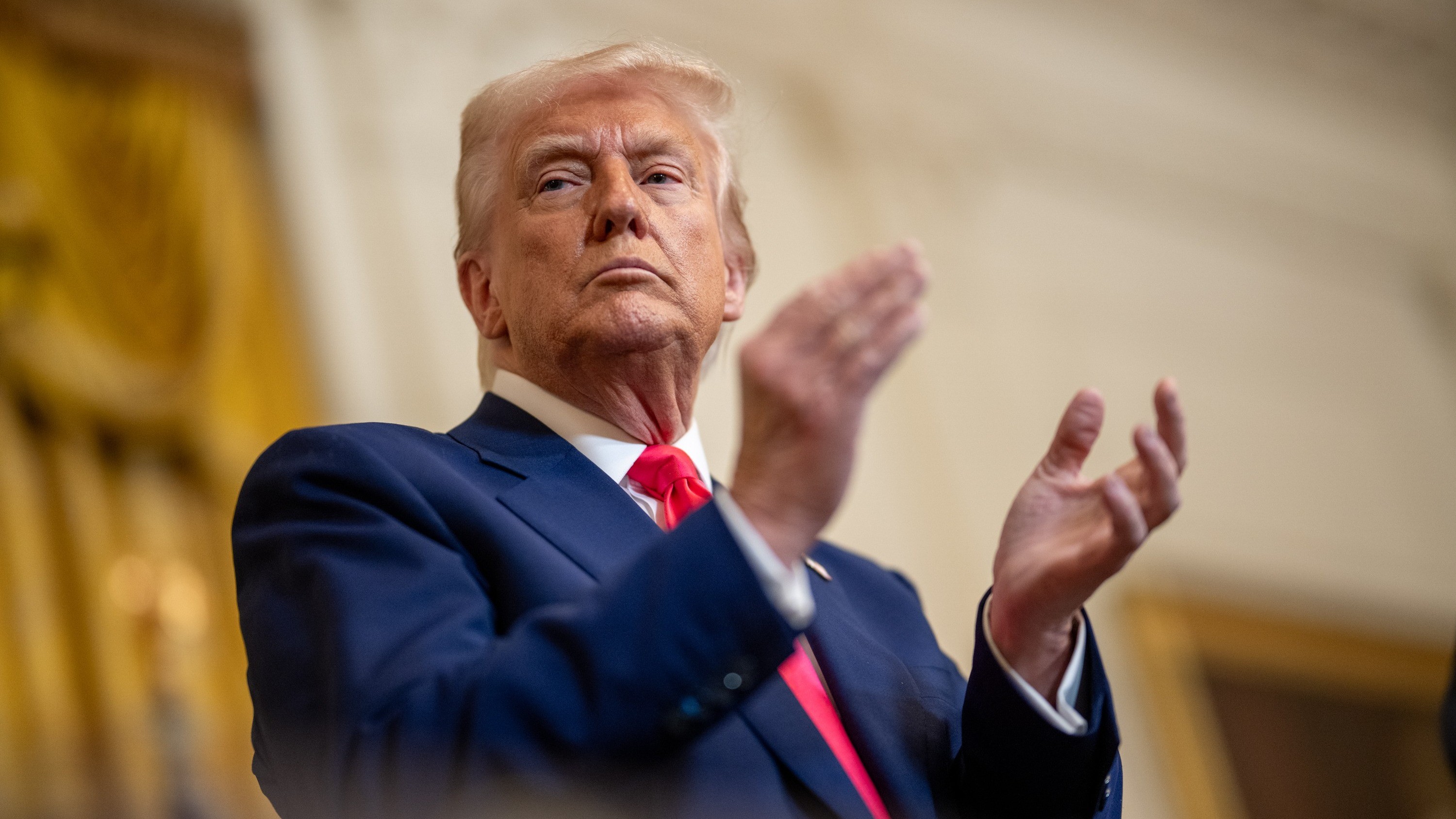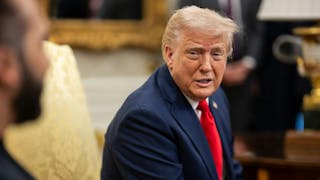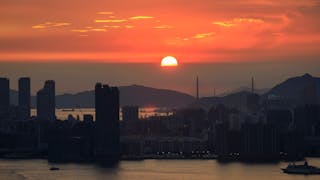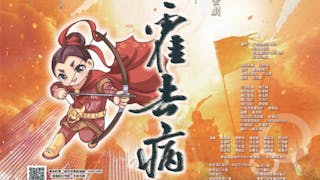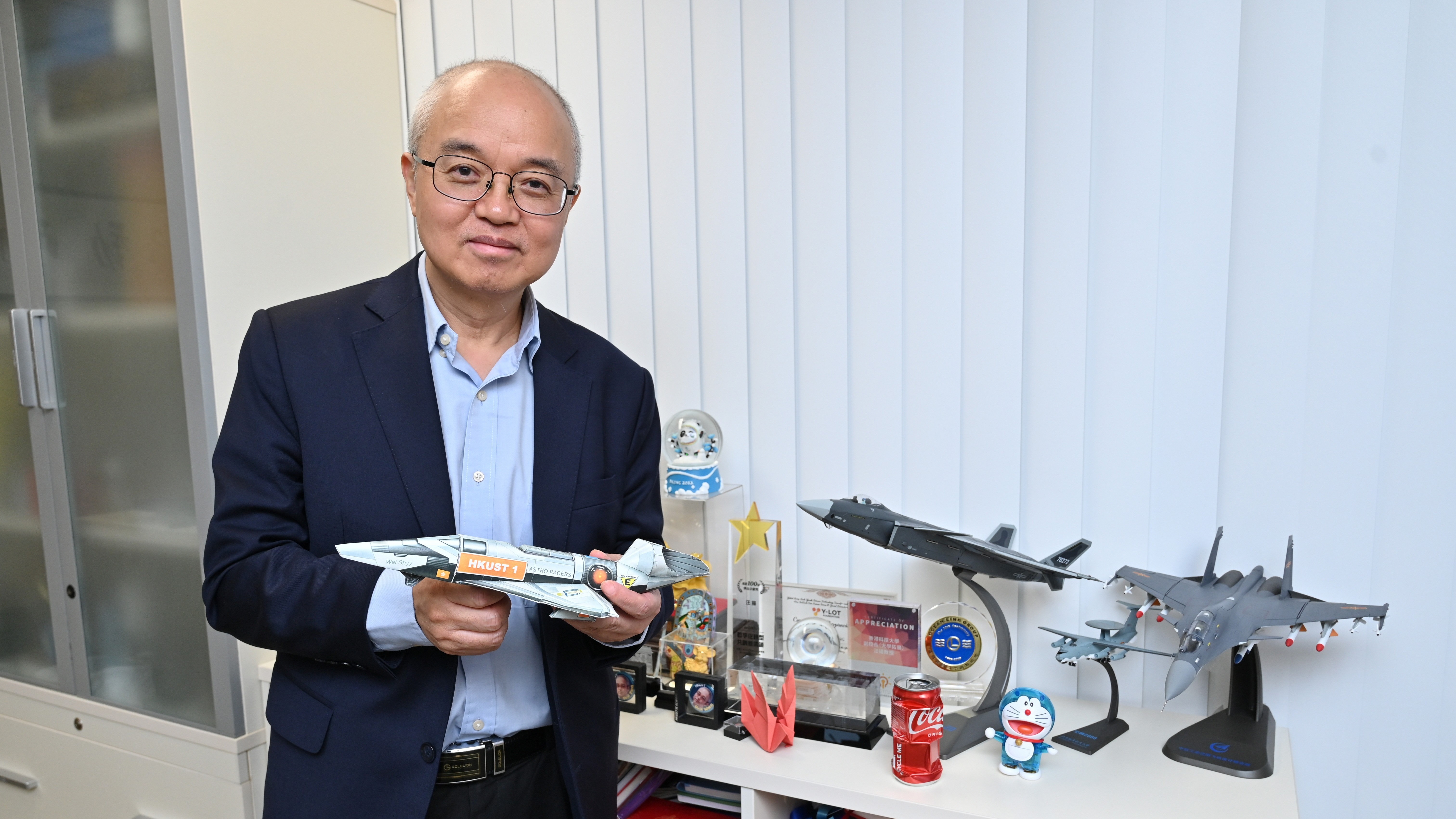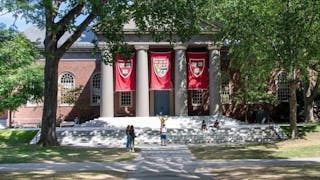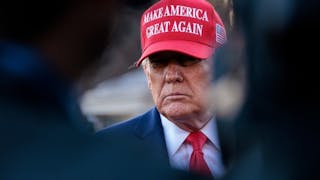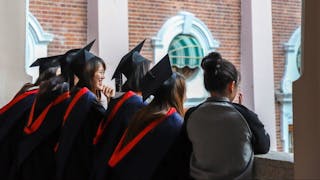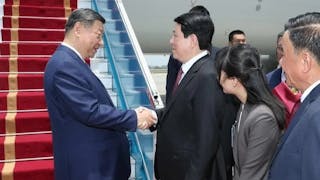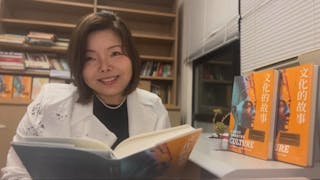4月6日,政務司前司長李家超決定參選香港特別行政區第6屆行政長官,4月7日中國國務院迅速批准他辭去政務司司長職務,李家超4月9日記者會上的講話內容,對香港有重大的政治意義。
國家安全將是香港頭等大事
首先,儘管一些時事評論員和政治精英對中央政府立即支持李家超參選的決定表示驚訝,但仔細分析李家超近年職業生涯的發展──從助理警務處長(2003-2011)到保安局副局長(2012-2017)、保安局局長(2017年至2021年5月)及政務司司長(2021年6月至2022年4月)──顯示他在處理香港特別行政區的安全問題方面有着良好的記錄。
許多香港觀察家忽略了這樣一個事實,即自2012年底以來,中國當局一直面對着威脅國家安全的問題(政治安全、經濟安全、公共衛生安全、文化安全等),香港因社會政治運動(2012年反國民教育運動、2014年9月至2014年12月佔中事件、2016年初旺角暴動、2016年10月至11月立法會宣誓風波,以及2019年6月至11月的反修例風波)。中央將國家安全視為香港特別行政區的頭等大事是很自然的,特別是根據2020年6月下旬頒布的《香港國安法》,外國和外部勢力對香港事務的干預,在政治和法律上都是不可接受的。
據香港一些傳媒報道,中央官員曾與將選出行政長官的選舉委員會的1500名成員中的一些人會面透露,李家超將是即將舉行的行政長官選舉中的唯一候選人。如果這是真的,香港特別行政區明顯必須將捍衛政治和制度安全視為重中之重。
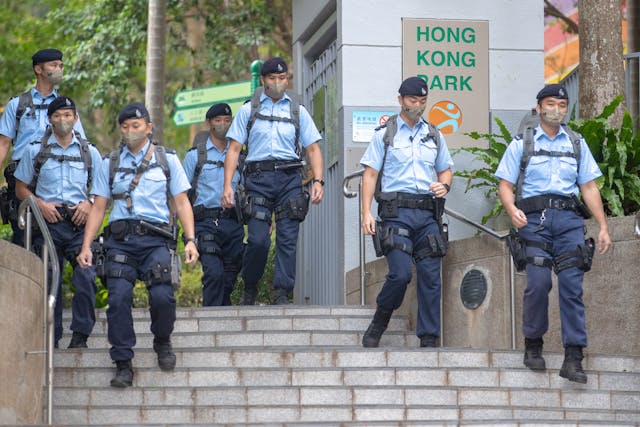
組建有能力管治團隊重任在肩
其次,質疑李家超是否具備金融和經濟事務專長的懷疑論者忽略了3個問題:一、前任行政長官(董建華、曾蔭權、梁振英和林鄭月娥)都不是金融專家;二、行政長官的角色,正如李家超4月9日在回答記者提問時所指出的,就是要建立一支知識淵博、有能力領導特區政府的管治團隊;三、歷來由財政司司長專管財經事務,並得到財經事務及庫務局局長的支持和工作。
中央認為香港的金融和國際貨幣中心強大而穩定。對李家超參選持懷疑態度的人,似乎質疑香港的金融和國際地位,是否已經因為最近幾個月許多外籍人士和本地中產階級的外流而下降。事實上,鑑於外籍人士的離開和香港人的移民,香港特區政府需要制定更完善的移民政策,以吸引外國人才和留住本地人──如果李家超當選為行政長官,將不得不與更多人共同應對這一任務,研究更詳細的人才政策(例如吸引什麼類型的內地人才)和適應香港特別行政區需要、更好的高等教育培訓。
不實揣測只因未有注重細節
第三,這次選舉的有趣之處在於,傳媒一直在報道一些揣測,例如(1)林鄭月娥會多做一任;(2)其他有意參選的人士,可能會在聽聞只有李家超一位候選人的消息公布前報名。事實證明,林鄭月娥4月4日表示,她早在2021年3月已決定不參選第6任行政長官選舉。不少觀察人士忽略了林鄭月娥此前一些不繼續參選的政治姿態。包括2021年她在公開場合提到家人的時候,都變得有些情緒化了。
最重要的是,在2021年12月林鄭月娥與國家主席習近平的會晤中,當局發布的官方照片首次沒有顯示兩人握手,這與以往的年度述職不同。相反,許多評論人士指出,香港特區政府在2022年3月應對Omicron變種病毒擴散的表現遲緩,是導致林鄭月娥「最終」決定不參選的「關鍵」因素。然而,傳媒和林鄭月娥的堅定支持者經常有一種錯覺,認為她會在某些方面繼續下去。她的支持者和許多觀察家都忘記了,在2019年反修例風波期間,據路透社報道,她曾萌生過辭去行政長官職務的想法,但被中央拒絕了。簡而言之,許多分析家分析林鄭月娥的動靜並不準確,主要是因為他們沒有仔細觀察她的言行,包括2021年12月她與習近平主席的重要會晤。
第四,也有傳媒錯誤地預測將有其他競爭者,例如前行政長官梁振英和財政司司長陳茂波。新聞報道指出,中央有意任命梁振英為選舉委員會總召集人,很明顯,這樣的舉動意味着只有擁有國家級領導資格的香港人,才能出任如此有聲望和受尊敬的政治職位。總召集人應該在政治上高於行政長官選舉。
此外,陳茂波在4月6日下午公開表示,祝願李家超「一切順利」,很明顯,陳茂波不太可能參選。
或許一些商界人士希望陳茂波能參選,不過,隨着新聞報道披露李家超是唯一的候選人後,許多商界人士開始公開表態,對李家超表示支持。
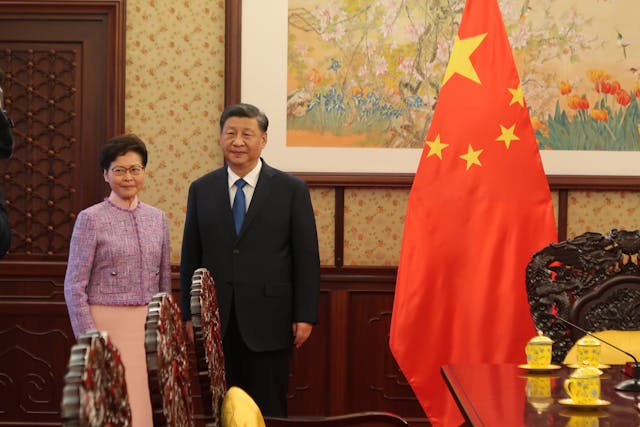
「統戰」各派系爭取管治合法性
第五,李家超得到港區全國人大常委譚耀宗出任競選辦主任。4月9日,譚耀宗表示希望獲得至少500個提名支持李家超,希望李家超高票當選。譚耀宗的言論具有政治意義,意味着提名和選舉的政治目的,是要通過大量的提名和投票,令李家超獲得高度的合法性。
第六,仔細觀察組成李家超競選辦公室的17位主任和副主任,可以看出既有立法會議員,也有一些親北京的精英。從統戰的角度來看,李家超的競選辦公室是由一群愛國者領導的,他們將幫助他在選舉中獲得大量提名和選票。誰將成為被任命為司局長級職位的愛國精英,以及行政會議成員,還有待觀察,但可想而知,民建聯的一些核心成員可能會繼續被任命為行政會議成員和一些主要官員職位,包括「重奪」民政事務局局長的可能性。民建聯成員徐英偉因在疫情爆發期間參加生日派對而辭任民政事務局局長。
第七,從平衡和團結香港不同派系的角度來看,重要的是觀察在香港政治圈中的幾個派系將佔據多少司局長和行政會議職位:即:一、民建聯;二、工聯會;三、分散的商界精英;四、內地出生的香港人,其中一些人2021年12月當選立法會議員; 五、不屬於任何政治團體或政黨的專業人士。商界精英仍然是分散的,由自由黨、經民聯成員和其他無黨派人士組成。競選辦主任和一些副主任可能會說服李家超選擇他們推薦的人士出任司局長和行政會議成員,但最終拍板的是中央。總之,如何選賢任能,值得我們關注。
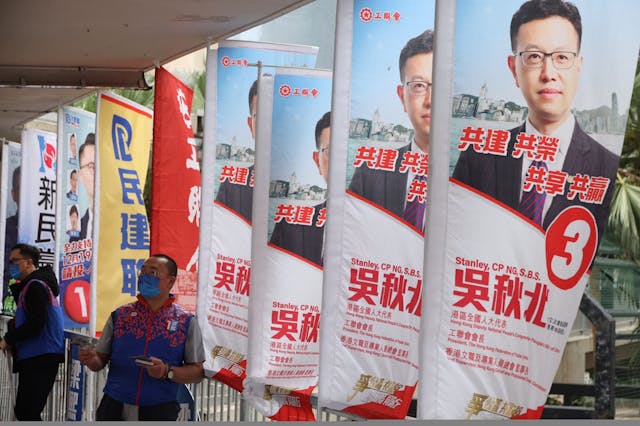
中央大力支持提升本港競爭力
第八,由於中華人民共和國是在中國共產黨領導下的多黨合作制度,中央自然希望面對一個李家超領導下更加團結的管治班子。李家超在4月9日的記者會上表示,希望有一個齊心協力的團隊,全面提升香港的競爭力,奠定香港發展的穩固基石。以結果為目標的管治理念,取決於管治班子的成員能否保持團結,能否有效協調,能否有效與公眾溝通。《香港國安法》的實施,無疑將確保管治基礎的穩定,但在移民外流的挑戰和經濟融入大灣區的需求中,香港的競爭力將如何保持仍有待觀察。
綜上所述,李家超參加香港特別行政區第6屆行政長官選舉,意義重大,標誌着北京在其對香港政策上,採取以國家和制度安全為重中之重。事實證明,質疑李家超資歷的懷疑論者已經偃旗息鼓。雖然中央認為香港作為國際金融的地位沒有任何問題,但香港的金融和經濟發展歷來是財政司司長的事,而不是行政長官,後者是管治團隊組建過程中的領導者。
港媒高估了林鄭月娥的政治「野心」,低估了她對家人的重視,而忽略了林鄭月娥與習近平主席在2021年12月的重要互動。傳媒在尋找其他潛在的行政長官候選人時,也忽略了一個事實,就是中央不想見到香港特首選舉中出現派系鬥爭。然而,李家超和他的支持者面臨的挑戰,是要在選舉中獲得大量提名和選票。最重要的是,在重組香港分散的派系精英的統戰工作過程中,李家超挑選司局長和行政會議成員絕非易事。不過,在中央的大力支持下,倘若李家超當選行政長官,他很有可能建立起自己的管治和顧問團隊,以期在未來數年實現提升香港競爭力、以結果為目標,以及奠定香港發展穩固基石的目標。
An analysis of John Lee’s participation in Hong Kong’s Chief Executive Elections
The decision of John Lee to run for the sixth Chief Executive elections in the Hong Kong Special Administrative Region (HKSAR) on April 6, the prompt approval of China’s State Council to approve his resignation from the position of the Chief Secretary for Administration on April 7, and the content of Lee’s press conference on April 9 have significant political implications for Hong Kong.
First, although some media commentators and political elites expressed their surprise at the central government’s immediate support of John Lee’s decision to run in the upcoming election, a careful analysis of Lee’s recent career development – from the Assistant Police Commissioner (2003-2011) to Undersecretary for Security (2012-2017), Secretary for Security (2017-May 2021), and then Chief Secretary (June 2021-April 2022) – has shown that he had a strong record of dealing with security issues in the HKSAR. Many observers in Hong Kong have ignored the fact that while the People’s Republic of China (PRC) since late 2012 has been witnessing a trend of securitization (political security, economic security, public health security, cultural security, to name just a few), the HKSAR was plunged into a crisis of legitimacy by socio-political movements (anti-national education movement in 2012, Occupy Central Movement in September-December 2014, Mongkok riot in early 2016, oath-taking controversy in October-November 2016, and anti-extradition movement in June-November 2019). It is natural that the central authorities see security as the top priority issue for the HKSAR, especially because external and foreign influences on Hong Kong matters were seen as politically and legally unacceptable under the national security law, which was promulgated in late June 2020.
According to some Hong Kong news reports, Chinese officials who met some of the 1,500 members of the Election Committee, which will select the Chief Executive, revealed that Mr. Lee would be the only candidate in the upcoming election. If so, it is clear that the HKSAR is required to protect its political and regime security as the top priority.
Second, sceptics who question whether Mr John Lee has the expertise in financial and economic affairs have neglected three issues: (1) the previous Hong Kong Chief Executives (Tung Chee-hwa, Donald Tsang, C.Y. Leung and Carrie Lam) were by no means financial experts; (2) the role of the Chief Executive, as John Lee pointed out in his response to reporters’ questions on April 9, is to build up a team of ministers who are knowledgeable and competent to lead the government of the HKSAR; and (3) it has traditionally been the Finance Secretary who specializes in financial and economic affairs, together with support and work from the Secretary for the Financial Services and the Treasury.
The Chinese officials have seen Hong Kong’s financial and international monetary centre as strong and stable. Sceptics of John Lee’s participation have appeared to question whether Hong Kong’s financial and international status has already declined because of the outward migration of many expatriates and middle-class locals in the recent months. Indeed, the outward migration of expatriates and emigration of Hongkongers demand a more sophisticated immigration policy of the HKSAR government to attract foreign talents and retain locals – a task that John Lee, if elected as the Chief Executive, would have to tackle together with a more detailed population policy (attracting what types of mainland talents, for example) and a better higher education training geared to the needs of the HKSAR.
Third, what was interesting in this election was that the media kept on spreading rumours saying that (1) Chief Executive Carrie Lam would continue, that (2) other candidates would likely run before the news concerning only one candidate, namely John Lee, were heard. As it turned out, Carrie Lam said on April 4 that she had decided not to run for the sixth Chief Executive election as early as March 2021. Many observers have neglected some previous political gestures from Chief Executive Carrie Lam that she would not continue to run, including the fact that when she mentioned her family in public in 2021, she became a bit emotional. Most importantly, in a December 2021 meeting between Carrie Lam and President Xi Jinping, for the first time the official photo released by authorities did not show that they shook hands, unlike the previous annual meetings. Instead, many commentators pointed to the sluggish performance of the HKSAR government in dealing with the spread of Omicron in March 2022 as a “crucial” factor leading to Lam’s “late” decision of not running. Nevertheless, there was often an illusion in the media, and among Lam’s staunch supporters, that she would continue in some ways. Her supporters and many observers have forgotten that during the anti-extradition movement in 2019, it was reported by Reuters that she once toyed with the idea of stepping down from the position of the Chief Executive – an idea rejected by central authorities. In short, many analysts of Carrie Lam’s moves were inaccurate mainly because of their failure to carefully observe her gestures, including the important meeting between her and President Xi in December 2021.
Fourth, some media were also wrong in that they predicted that there would be other contenders, like the former Chief Executive C. Y. Leung and the Financial Secretary Paul Chan. When news reports pointed to the intention of the central government to appoint Leung as the convenor of the Election Committee, it was clear that such a move would mean that only a Hong Kong person with the state-level leadership can take over such a prestigious and highly respectable political position. The convenor is supposed to be politically standing above the Chief Executive election. Furthermore, when Paul Chan publicly said on the afternoon of April 6 that he wished John Lee “smoothness in everything,” it was clear that Chan would be unlikely running in the election.
Perhaps some business elites hoped that Chan would run for the election. But as the news reports revealed that Lee would be the only candidate, many business elites began to express their public support of him.
Fifth, John Lee has secured the campaign assistance from Tam Yiu-chung, a Hong Kong member of the Standing Committee of China’s National People’s Congress. On April 9, Tam said that he hoped to secure at least 500 nominations in support of Lee, and that Lee would hopefully get a high number of votes in the election. Tam’s remarks were politically significant, meaning that the politics of nomination and elections have the objective of acquiring a high degree of legitimacy for Mr. John Lee through a large number of nominations ad voting.
Sixth, a careful reading of the composition of the 17 directors and deputy directors of Lee’s campaign office shows that they comprise legislators and some pro-Beijing elites. From the perspective of united front, his campaign office is led by a group of patriots who will help Lee obtain a high number of nominations and votes in the election. It remains to be seen who will be the patriotic elites appointed to the ministerial positions and the membership of the top policy-making Executive Council (ExCo). Predictably, some core members of the Democratic Progressive Alliance for the Betterment and Progress (DAB) of Hong Kong will likely be appointed continuously to the ExCo and to a few positions of the Principal Officials, including the possibility of “recapturing” the Secretary for Home Affairs whose former DAB member Casper Tsui resigned due to his involvement in a birthday party amid the outbreak of Omicron.
Seventh, from the perspective of balancing and uniting different factions in the HKSAR, it would be important to observe how many ministerial and ExCo positions would be occupied by several factions in Hong Kong politics: namely (1) the DAB, (2) the pro-Beijing Federation of Trade Unions, (3) the fragmented business elites, (4) the mainland-born Hongkongers some of whom were elected to the Legislative Council in December 2021; and (4) the professionals who are not affiliated with any political groups or parties. The business elites remain fragmented and are composed of the members from the Liberal Party, the Business Professional Alliance, and other non-affiliated people. It is likely that some directors and deputy directors would lobby John Lee to select their recommended elites to be the ministers and ExCo members, but the final say would be the central authorities. In short, the politics of personnel appointment will deserve our attention.
Eighth, since the PRC is governed by one single dominant ruling party and faction, the central authorities would naturally like to envisage a more unified ruling coalition under John Lee. Lee said in the press conference on April 9 that he would like to have a united team building up Hong Kong’s competitiveness, achieving results, and laying down the foundation of stability. The results-oriented governing philosophy will depend on whether the governing coalition members will remain united, will coordinate among themselves efficiently, and will communicate with the public effectively. While the national security law and its implementation will undoubtedly ensure the foundation of stability, it remains to be seen how Hong Kong’s competitiveness will be retained amid the challenges of outward migration and the demand for economic integration into the Greater Bay Area.
In conclusion, the participation of John Lee in the sixth Chief Executive election in the HKSAR has significant implications. It signals the top priority of national and regime security that Beijing adopts on its policy toward Hong Kong. It proves that the sceptics who question John Lee’s credentials have swept under the carpet that while China does not see any problem in the status of Hong Kong as a financial and an international centre, the financial and economic development of the HKSAR has traditionally been the portfolio of the Financial Secretary rather than the Chief Executive, who is the leader in the process of team-building and ministerial formation. The Hong Kong media have overestimated Carrie Lam’s political “ambition” and underestimated her priority accorded to her family, while neglecting the important interaction between Lam and President Xi in December 2021. The media’s quest for other potential candidates for the HKSAR have also neglected the fact that the central authorities do not want to witness factional struggles in Hong Kong’s Chief Executive election. The challenge for Lee and his supporters, however, is to gain a high number of nominations and votes in the election. Above all, in the process of rebuilding united front work among the fragmented and factionalized elites in the HKSAR, John Lee will not have an easy task of selecting his ministers and ExCo members. Yet, with the strong support of central authorities, he will likely be able to build up his own team of ministers and advisers so that his objectives of enhancing Hong Kong’s competitiveness, results-oriented approach, and stable foundation will hopefully be achieved in the coming years, if he would be elected as the Chief Executive.
原刊於澳門新聞通訊社(MNA)網站,本社獲作者授權轉載。



